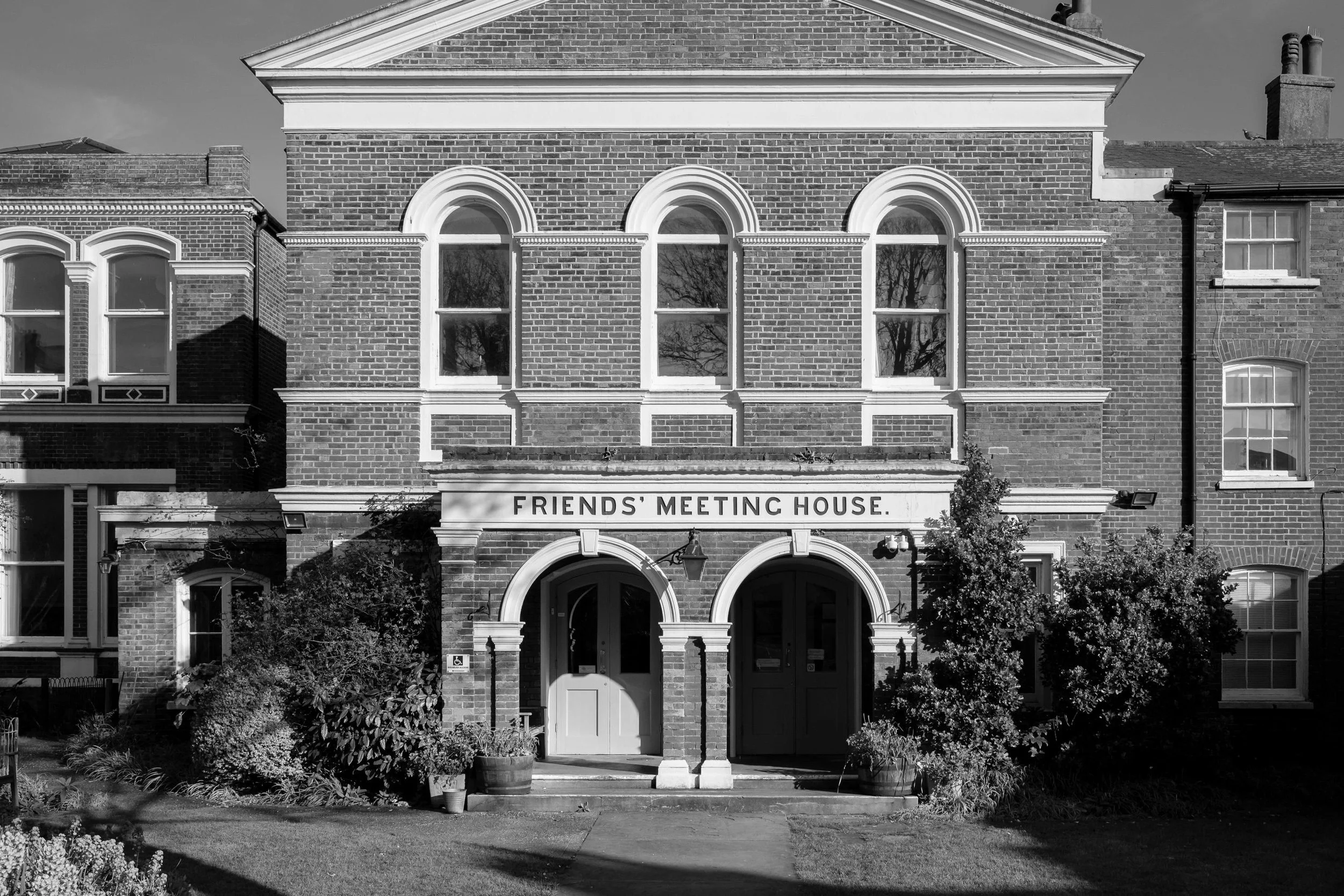Silence as resistance: What Quaker spirituality teaches activists
Photograph by Paul Groom Photography Bristol via Pexels
Nathan Perrin
When folks hear about how busy I am with activism and ministry, one of their usual go-to questions for me is about how I maintain self-care. I often credit my Quaker roots and daily practices of silence. Although I have ended up as a Mennonite pastor, I still identify strongly with Quaker spirituality and incorporate it into my own Anabaptist theology.
For folks who have not been to a Quaker meeting, there is a style of worship they’re known for called open worship. It’s where congregants gather in silence and wait for inspiration from God. In Quaker theology, all have access to God since all humanity is made in God’s image. George Fox famously said, “There is one, even Christ Jesus, who can speak to thy condition.”
This open worship can either cover the entirety of the service (known as unprogrammed) or it can be a section of it (programmed). Regardless, Quakerism is rooted in the radical idea that if we pause and listen, then God will show us the way. This was attractive to me as a teenager.
For my own personal practice with silence, I returned to Christianity as a teenager because I was among Quakers who valued it. I was quickly dismayed at the rock concerts I would see in some programmed Friends circles, and at the hesitancy to embrace open worship because it makes people uncomfortable.
But if we can’t make space for the Holy Spirit to speak, then the church loses her witness to our culture and wider world. The Spirit’s stirring in the silence led the Quakers to empower women pastors, become an abolitionist movement, oppose systems of war, and develop radical systems of equality that influenced the foundations of US American democracy. The early Quakers believed that their entire lives were a ministry, and their lifestyles were supposed to preach to everyone.
Their theology was a holistic stance that rivaled the Puritans – that a relationship with Christ led to radical engagement with the world, with love for neighbor and enemy alike. Like the Anabaptists, they took the words of Jesus’ teachings literally and sought to live out the Sermon on the Mount. In fact, Mennonites and Quakers worshipped together briefly in Germantown, Pennsylvania when the first Mennonite migration happened in the late 1600s.
Quaker spirituality is rooted in the radical idea that if we pause and listen, then God will show us the way.
What the wider American church can learn from Quaker spirituality is very straightforward: we don’t need the bells and whistles of a rock concert experience to motivate people to connect to God. We don’t need excess and a guilt complex to be connected with Christ. We don’t need pastors to micromanage our lives.
Instead, what is really needed is a willingness to learn from God himself. In his book “How God Changes Your Brain,” Dr. Andrew Newberg, a neuroscientist, shows that even meditating for a mere twelve minutes a day leads to a wider sense of empathy and compassion. Along with those surprising gifts, a deeper appreciation of life occurs too.
The effects of silence leading to action and empathy can be seen in other spaces too. For folks in twelve-step circles, meditation, prayer, and silence are a primary way of maintaining recovery. Step 11 recommends to the attenders “prayer and meditation to improve [their] conscious contact with God as [they] understood Him, praying only for knowledge of His will for [them] and the power to carry that out.” This then leads to a sense that the person in recovery has a duty to the world to help repair it. In other words, they understand that spirituality is supposed to propel us to connect with others on a daily basis, not for a once-a-week occurrence.
When we turn worship services into distracting sources of entertainment rather than spaces to encounter God on his own terms, we have no witness to bear to the world. To be clear, I’m not writing this as an anti-CCM agitator. In fact, I do believe there can be spaces in church where all sorts of music can be played to honor our shared faith.
Where my concern comes in is when folks use that form of worship as a form of distraction and entertainment alone. We’re living in a time where the church can’t afford to be disengaged. If we walk away from church thinking we have no responsibility to God and to our neighbor to be more loving and radical, then we have wasted a good Sunday morning.
Devote some time this week to encounter God in the silence. What God reveals may just surprise you.
Nathan Perrin (he/him/his) is a writer and Anabaptist pastor in Chicagoland. He holds an MA in Quaker Studies and is a doctoral student studying Christian Community Development at Northern Seminary. His doctorate work centers on creating a writing program for nonprofits and churches to use to help under-resourced communities process trauma. His work has been published in the Dillydoun Review, Bangalore Review, Collateral Journal, Esoterica Magazine, etc. His forthcoming novella Memories of Green Rivers will be released in winter 2026 by Running Wild Press. He is also a screenwriter. For more information, visit www.nathanperrinwriter.com
The views expressed are those of the author and not necessarily those of American Baptist Home Mission Societies.
Get early access to the newest stories from Christian Citizen writers, receive contextual stories which support Christian Citizen content from the world’s top publications and join a community sharing the latest in justice, mercy and faith.

